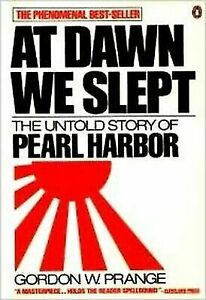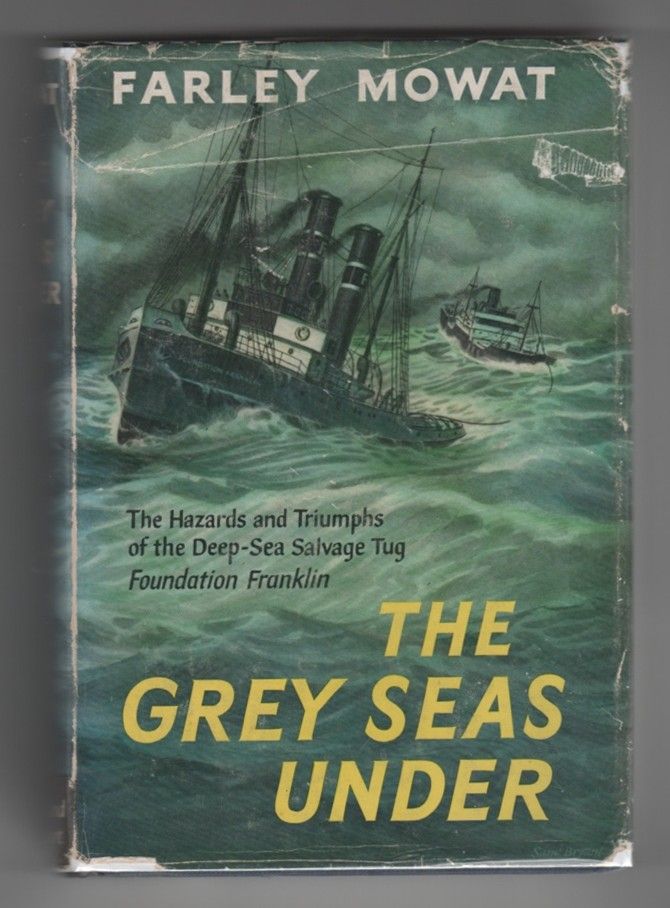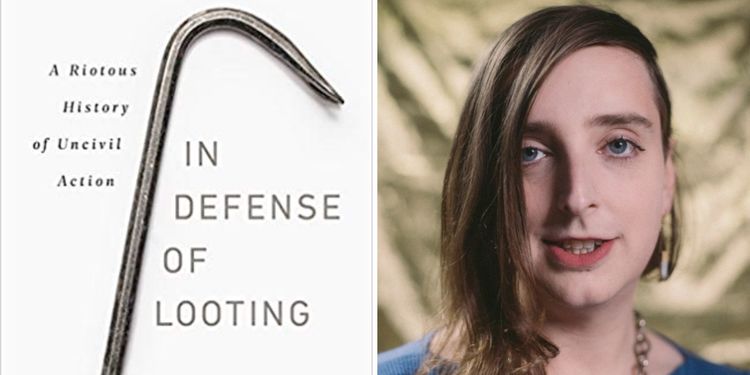Colleges
- American Athletic
- Atlantic Coast
- Big 12
- Big East
- Big Ten
- Colonial
- Conference USA
- Independents (FBS)
- Junior College
- Mountain West
- Northeast
- Pac-12
- Patriot League
- Pioneer League
- Southeastern
- Sun Belt
- Army
- Charlotte
- East Carolina
- Florida Atlantic
- Memphis
- Navy
- North Texas
- Rice
- South Florida
- Temple
- Tulane
- Tulsa
- UAB
- UTSA
- Boston College
- California
- Clemson
- Duke
- Florida State
- Georgia Tech
- Louisville
- Miami (FL)
- North Carolina
- North Carolina State
- Pittsburgh
- Southern Methodist
- Stanford
- Syracuse
- Virginia
- Virginia Tech
- Wake Forest
- Arizona
- Arizona State
- Baylor
- Brigham Young
- Cincinnati
- Colorado
- Houston
- Iowa State
- Kansas
- Kansas State
- Oklahoma State
- TCU
- Texas Tech
- UCF
- Utah
- West Virginia
- Illinois
- Indiana
- Iowa
- Maryland
- Michigan
- Michigan State
- Minnesota
- Nebraska
- Northwestern
- Ohio State
- Oregon
- Penn State
- Purdue
- Rutgers
- UCLA
- USC
- Washington
- Wisconsin
High Schools
- Illinois HS Sports
- Indiana HS Sports
- Iowa HS Sports
- Kansas HS Sports
- Michigan HS Sports
- Minnesota HS Sports
- Missouri HS Sports
- Nebraska HS Sports
- Oklahoma HS Sports
- Texas HS Hoops
- Texas HS Sports
- Wisconsin HS Sports
- Cincinnati HS Sports
- Delaware
- Maryland HS Sports
- New Jersey HS Hoops
- New Jersey HS Sports
- NYC HS Hoops
- Ohio HS Sports
- Pennsylvania HS Sports
- Virginia HS Sports
- West Virginia HS Sports
ADVERTISEMENT
You are using an out of date browser. It may not display this or other websites correctly.
You should upgrade or use an alternative browser.
You should upgrade or use an alternative browser.
What book(s) are you currently reading?
- Thread starter john4psu
- Start date
Pacific Crucible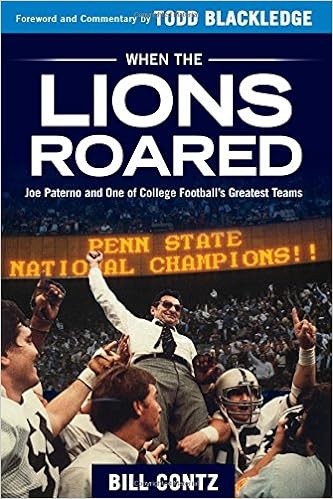
I’m reading When the Lions Roared by Bill Contz. The story of the ’82 Nittany Lions which happened to be my junior year and first year at main campus. I’ve read some stories that I haven’t heard before. I’m up to Sugar Bowl week and can’t wait to find out how we do against Herschel Walker and #1 Georgia in the Sugar Bowl! Who doesn't love a happy ending?
by Toll
About first phase of Pacific Theater of WW2
Churchill’s ministry of ungentlemanly warfare — about uks commando and asymmetrical warfare group in wwii
Churchill’s ministry of ungentlemanly warfare — about uks commando and asymmetrical warfare group in wwii
To the knowledgable WWII heads in here- is it true the Germans were on pace to have the A-bomb first but that the Brits dropped some kind of special bombs on their water treatment plants...
No, they weren’t. The link makes it sound like they were close, but I’d you read the article you will see they weren’t very close.To the knowledgable WWII heads in here- is it true the Germans were on pace to have the A-bomb first but that the Brits dropped some kind of special bombs on their water treatment plants...
https://www.google.com/amp/s/www.sc...ose-nazi-germany-was-to-a-nuclear-program/amp
Yes, correct. Germany was at least two years away from a bomb when the war ended.No, they weren’t. The link makes it sound like they were close, but I’d you read the article you will see they weren’t very close.
https://www.google.com/amp/s/www.sc...ose-nazi-germany-was-to-a-nuclear-program/amp
That and other cool stuff is covered. Favorite is the two old guys out of Hong Kong who were the experts on silent killing.To the knowledgable WWII heads in here- is it true the Germans were on pace to have the A-bomb first but that the Brits dropped some kind of special bombs on their water treatment plants...
The assigned list of books to read from my high school years.
I ran across the list a few months ago and it prompted me, as a summer self-improvement project, to reread assigned books from my youth. Incredibly enlightening. It's so much different and meaningful to read classic books at age XX instead of age 15-18.
I now realize how artificial and incomplete Cliffs Notes actually were (do they still publish those things?) but they served their purpose at the time.
I ran across the list a few months ago and it prompted me, as a summer self-improvement project, to reread assigned books from my youth. Incredibly enlightening. It's so much different and meaningful to read classic books at age XX instead of age 15-18.
I now realize how artificial and incomplete Cliffs Notes actually were (do they still publish those things?) but they served their purpose at the time.
Re-reading:

It’s both history and physics. The book is brilliantly constructed, with the physics carefully and lovingly explained. This is also a great book on relativity, and does a better job of explaining relativity than any other book I’ve read.
I read that book many years ago and it was really good. Maybe I'll read it again too.
He writes about how Bessel, in 1838, was able to roughly determine the distance from Earth to the star 61 Cygni. The next question was, how far away were the nebulae? Herschel believed that the nebulae were part of the Milky Way. This brings us to Lord Rosse’s Leviathan of Parsonstown:I read that book many years ago and it was really good. Maybe I'll read it again too.
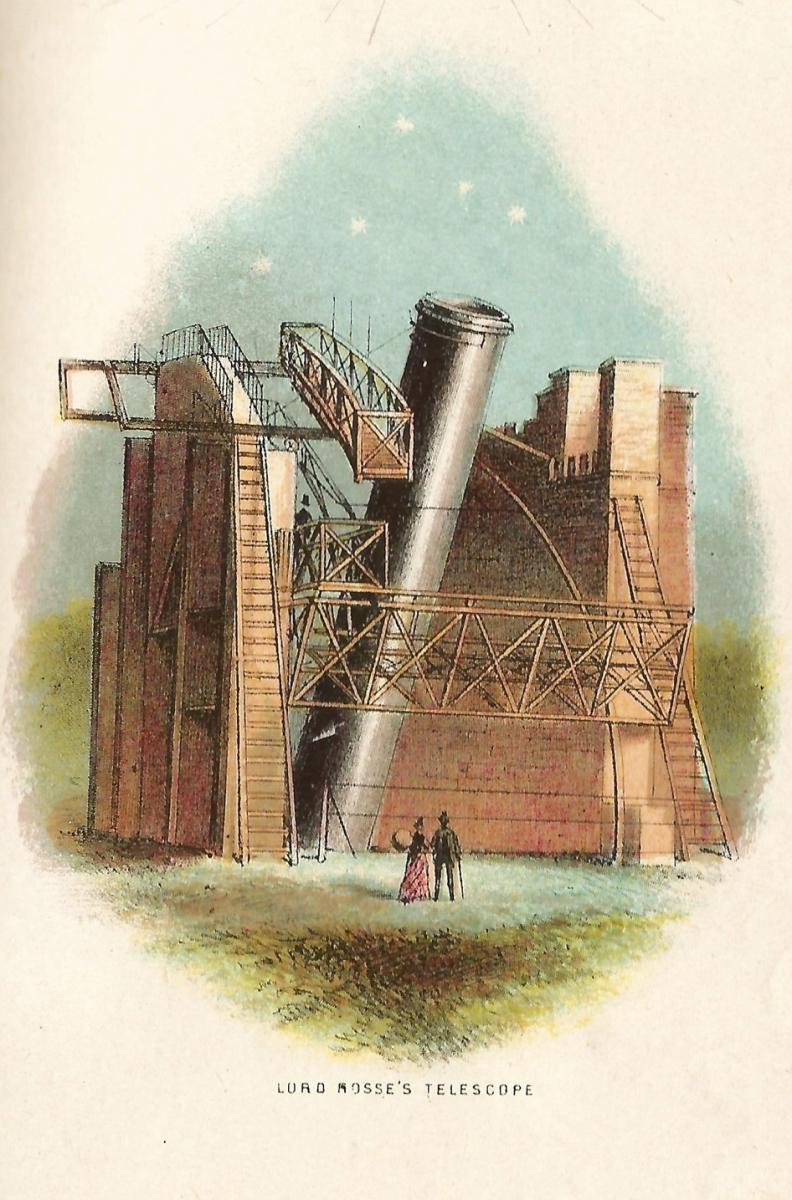
After using this telescope, Lord Rosse in 1848 drew this picture of the Whirlpool Nebulae (M51). The small image is a photograph of M51 taken by the Hubble Space Telescope.

May have been more than that. Germany had a shortage of chemists, engineers, scientists and physicists because they banned Jews from those professions and they changed the way they taught science to conform with Nazi policies about race.Yes, correct. Germany was at least two years away from a bomb when the war ended.
Two key people in the development of the atomic bomb were Einstein (Germany) and Fermi (Italy) who were both run off by their governments.
You must have a strong stomach.I just finished KL: A History of the Nazi Concentration Camps by Nikolaus Wachsmann.
It's a long read -- 625 pages of text on fairly large pages and smallish print. But boy oh boy......it's emotionally taxing. The kind of book that triggers restless sleep.
I have watched some documentaries about the camps, and saw Schindler's List, but I don't think I could make it through a book like you describe. It all really did happen, but the inhumanity of it is still shocking.
Major props to Allied Commander Eisenhower for demanding photographic evidence and documentation of the horrors.
Yes, all those great Jewish physicists and mathematicians run out of Germany. It would be laughable if the underlying story were not so ugly. The great German mathematician Hilbert, upon being asked by some Nazi bureaucrat how the Gottingen mathematics department was getting on now that the Jews had been removed, “We suck.” (I’m paraphrasing.)May have been more than that. Germany had a shortage of chemists, engineers, scientists and physicists because they banned Jews from those professions and they changed the way they taught science to conform with Nazi policies about race.
Two key people in the development of the atomic bomb were Einstein (Germany) and Fermi (Italy) who were both run off by their governments.
Just to clarify, Fermi was not Jewish, but his wife was.
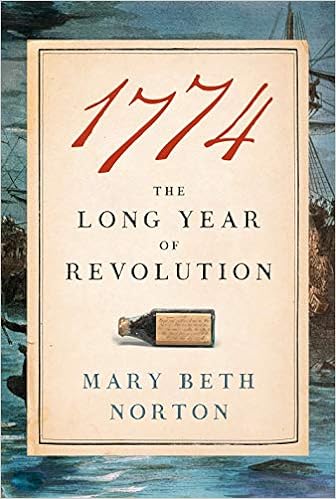
I just completed this today. Mary Beth Norton is one of the giants of Rev War research and instruction. She's a professor emerita at Cornell, and has written multiple books on the Rev War era, with one being a finalist for the Pulitzer Prize. If I recall correctly, this is her 1st solo book in 9 years.
This book focuses on 1774, but in fact expands the year to look at a 16-month period from late 1773 to April 1775. During this period, the colonies went from being generally happy, though sometimes frustrated, with the mother country, to the Battles of Lexington and Concord on April 19, 1775.
Early on in the book, Norton focuses on the 7 shipments of tea by the East India Company. 4 went to Boston (1 shipwrecked off of Cape Cod), and 1 went to Charleston in December 1773, and late in December another 1 sailed up the Delaware River toward Philadelphia, though it never docked in Philadelphia before it sailed back to England. The other ship was blown off course by a major storm, and spent the winter in the Caribbean, before sailing to New York City in 1774. Each city handled the situation differently, though the dynamics were also different in each city. Norton does a nice job of analyzing each situation.
The balance of the book explains the strange world in which a First Continental Congress took place, where Royal Governors took many actions to try to keep their respective legislatures from picking delegates, in many states organizations other than the official legislature selected the delegates, what the First Continental Congress decided, and how the respective colonies handled the Continental Association adopted by the First Continental Congress.
While we do know how the story ends, Norton does a really nice job of not telling the story from a particular side. In fact, she does a great job of telling it from the side of those that came to be called patriots, and from those that came to be called loyalists, and shows that many that ended up in either of those camps did not start out in either camp, and many took a gradual, and somewhat reluctant path to get into those camps.
Norton also does a nice job of showing the debates that took place amongst colonists in many states, that was in large part fought through pamphlets or in the press. You get a great insight into the arguments that were being made, and either the counter-argument or refutations that were published in response.
I enjoyed the book. I'd probably rate it a 4 star on a 5-star scale.
Crisis of Character: A White House Secret Service Officer Discloses His Firsthand Experience with Hillary, Bill, and How They Operate
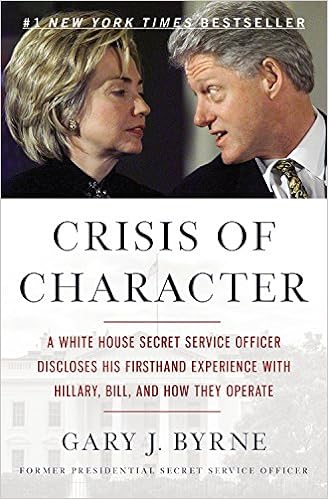

How is it on readability Tom? Sounds like it could be a bit dry/academic? Fascinating topic...I will check reviews too.
I just completed this today. Mary Beth Norton is one of the giants of Rev War research and instruction. She's a professor emerita at Cornell, and has written multiple books on the Rev War era, with one being a finalist for the Pulitzer Prize. If I recall correctly, this is her 1st solo book in 9 years.
This book focuses on 1774, but in fact expands the year to look at a 16-month period from late 1773 to April 1775. During this period, the colonies went from being generally happy, though sometimes frustrated, with the mother country, to the Battles of Lexington and Concord on April 19, 1775.
Early on in the book, Norton focuses on the 7 shipments of tea by the East India Company. 4 went to Boston (1 shipwrecked off of Cape Cod), and 1 went to Charleston in December 1773, and late in December another 1 sailed up the Delaware River toward Philadelphia, though it never docked in Philadelphia before it sailed back to England. The other ship was blown off course by a major storm, and spent the winter in the Caribbean, before sailing to New York City in 1774. Each city handled the situation differently, though the dynamics were also different in each city. Norton does a nice job of analyzing each situation.
The balance of the book explains the strange world in which a First Continental Congress took place, where Royal Governors took many actions to try to keep their respective legislatures from picking delegates, in many states organizations other than the official legislature selected the delegates, what the First Continental Congress decided, and how the respective colonies handled the Continental Association adopted by the First Continental Congress.
While we do know how the story ends, Norton does a really nice job of not telling the story from a particular side. In fact, she does a great job of telling it from the side of those that came to be called patriots, and from those that came to be called loyalists, and shows that many that ended up in either of those camps did not start out in either camp, and many took a gradual, and somewhat reluctant path to get into those camps.
Norton also does a nice job of showing the debates that took place amongst colonists in many states, that was in large part fought through pamphlets or in the press. You get a great insight into the arguments that were being made, and either the counter-argument or refutations that were published in response.
I enjoyed the book. I'd probably rate it a 4 star on a 5-star scale.
Do recommend:How is it on readability Tom? Sounds like it could be a bit dry/academic? Fascinating topic...I will check reviews too.
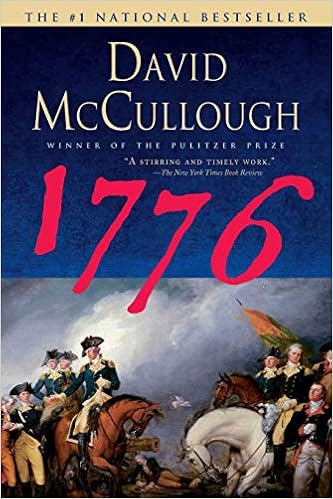
It is a great story of George Washington and his troops in a very difficult year.
How is it on readability Tom? Sounds like it could be a bit dry/academic? Fascinating topic...I will check reviews too.
Readability?? That's a tough one to answer. What one person finds an easy read, another person finds to be a yawner. To me, it was about a 4 on readability. It wasn't a book that I couldn't wait to get back to, but it also didn't have pages where I was getting bored.
Bit dry/academic? It's the rare history book that makes me laugh, though occasionally I stumble upon one like that. I wouldn't call it all that dry. There are entire books on each colony's actions in 1774/75/76. This book doesn't attempt to provide that for any of the colonies. However, it gives you a bit of the drama for late 1773, all of 1774, and early 1775 for each colony. Delaware probably gets the least amount of coverage. An academic book, at least to me, would have an entire chapter (if not more) on each colony, so in that context I wouldn't call it academic. It's more like a hybrid, in that you have an academic (Mary Beth Norton) trying to tell a compelling story that will satisfy historians, but also appeal to the masses. She's not a storyteller like Rick Atkinson, or Nathaniel Philbrick, but then neither of them are historians.
Fascinating topic? That it is, at least to me. It appears that it's only the second book on the Revolution, or the pre-Revolution era, that focuses exclusively on 1774. Most of the books that have focused on a specific year from this era focus on either 1775 or 1776. And almost all of the books on this era focus on the patriot side. This book is more balanced, and looks at things a year or two earlier than is the more common focus.
Thanks for the insights Tom! I checked out the reviews and there are some observations about the book being dry. But they context you provided as well as your description on the finer points along with my lifelong fascination with this era is pushing this to the ‘yes’ column.Readability?? That's a tough one to answer. What one person finds an easy read, another person finds to be a yawner. To me, it was about a 4 on readability. It wasn't a book that I couldn't wait to get back to, but it also didn't have pages where I was getting bored.
Bit dry/academic? It's the rare history book that makes me laugh, though occasionally I stumble upon one like that. I wouldn't call it all that dry. There are entire books on each colony's actions in 1774/75/76. This book doesn't attempt to provide that for any of the colonies. However, it gives you a bit of the drama for late 1773, all of 1774, and early 1775 for each colony. Delaware probably gets the least amount of coverage. An academic book, at least to me, would have an entire chapter (if not more) on each colony, so in that context I wouldn't call it academic. It's more like a hybrid, in that you have an academic (Mary Beth Norton) trying to tell a compelling story that will satisfy historians, but also appeal to the masses. She's not a storyteller like Rick Atkinson, or Nathaniel Philbrick, but then neither of them are historians.
Fascinating topic? That it is, at least to me. It appears that it's only the second book on the Revolution, or the pre-Revolution era, that focuses exclusively on 1774. Most of the books that have focused on a specific year from this era focus on either 1775 or 1776. And almost all of the books on this era focus on the patriot side. This book is more balanced, and looks at things a year or two earlier than is the more common focus.
On a related note, wondering if you have ever visited Kew Gardens in London (UK)? Toured George III’s palace there and and exhibits about the views from the Crown and the UK during the American Revolution. The perspective and the different use of terminology was very interesting and educational. Unique and awesome place to visit as well...dripping with history and scenery.
https://www.goodreads.com/book/show/75921.The_Decline_and_Fall_of_Practically_Everybody
The Decline and Fall of Practically Everybody: Great Figures of History Hilariously Humbled
by
Will Cuppy,
William Steig (Illustrator),
Fred Feldkamp (Editor)
first published 1950
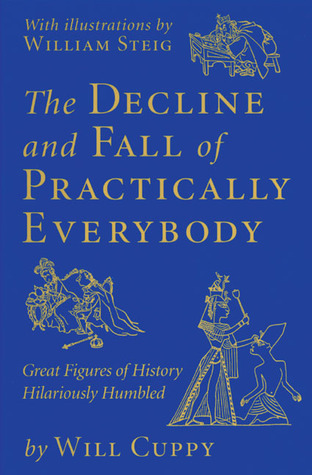
Ever wonder what Nero did before he began fiddling about in Rome, or wanted the bare facts about Lady Godiva? Maybe you've found the story of Lucrezia Borgia a bitter pill to swallow, or wanted the straight skinny on corpulent King Henry the Eighth, but you haven't the stomach for stuffy history books. Now these and twenty-two more of history's most famous personages are brought brilliantly to life, in this collection of unfailingly accurate yet undeniably hilarious biographies. You'll laugh while you learn about the very real people behind the legendary names, including why Montezuma was so vengeful, and why Catherine was so Great. You'll even finally lay to rest the rumor that Charlemagne was called "Chuck" by his friends.
The Decline and Fall of Practically Everybody: Great Figures of History Hilariously Humbled
by
Will Cuppy,
William Steig (Illustrator),
Fred Feldkamp (Editor)
first published 1950

Ever wonder what Nero did before he began fiddling about in Rome, or wanted the bare facts about Lady Godiva? Maybe you've found the story of Lucrezia Borgia a bitter pill to swallow, or wanted the straight skinny on corpulent King Henry the Eighth, but you haven't the stomach for stuffy history books. Now these and twenty-two more of history's most famous personages are brought brilliantly to life, in this collection of unfailingly accurate yet undeniably hilarious biographies. You'll laugh while you learn about the very real people behind the legendary names, including why Montezuma was so vengeful, and why Catherine was so Great. You'll even finally lay to rest the rumor that Charlemagne was called "Chuck" by his friends.
Tom, have you ever read herb storing’s Complete antifederalist papers (or the brief intro volume “what the antifederalists were for”)?
I just completed this today. Mary Beth Norton is one of the giants of Rev War research and instruction. She's a professor emerita at Cornell, and has written multiple books on the Rev War era, with one being a finalist for the Pulitzer Prize. If I recall correctly, this is her 1st solo book in 9 years.
This book focuses on 1774, but in fact expands the year to look at a 16-month period from late 1773 to April 1775. During this period, the colonies went from being generally happy, though sometimes frustrated, with the mother country, to the Battles of Lexington and Concord on April 19, 1775.
Early on in the book, Norton focuses on the 7 shipments of tea by the East India Company. 4 went to Boston (1 shipwrecked off of Cape Cod), and 1 went to Charleston in December 1773, and late in December another 1 sailed up the Delaware River toward Philadelphia, though it never docked in Philadelphia before it sailed back to England. The other ship was blown off course by a major storm, and spent the winter in the Caribbean, before sailing to New York City in 1774. Each city handled the situation differently, though the dynamics were also different in each city. Norton does a nice job of analyzing each situation.
The balance of the book explains the strange world in which a First Continental Congress took place, where Royal Governors took many actions to try to keep their respective legislatures from picking delegates, in many states organizations other than the official legislature selected the delegates, what the First Continental Congress decided, and how the respective colonies handled the Continental Association adopted by the First Continental Congress.
While we do know how the story ends, Norton does a really nice job of not telling the story from a particular side. In fact, she does a great job of telling it from the side of those that came to be called patriots, and from those that came to be called loyalists, and shows that many that ended up in either of those camps did not start out in either camp, and many took a gradual, and somewhat reluctant path to get into those camps.
Norton also does a nice job of showing the debates that took place amongst colonists in many states, that was in large part fought through pamphlets or in the press. You get a great insight into the arguments that were being made, and either the counter-argument or refutations that were published in response.
I enjoyed the book. I'd probably rate it a 4 star on a 5-star scale.
Robert Graves's Rocky Acres
THIS is a wild land, country of my choice,
With harsh craggy mountain, moor ample and bare.
Seldom in these acres is heard any voice
But voice of cold water that runs here and there
Through rocks and lank heather growing without any care.
No mice in the heath run, no song birds fly
For fear of the buzzard that floats in the sky.
He soars and he hovers, rocking on his wings,
He scans his wide parish with a sharp eye,
He catches the trembling of small hidden things,
He tears them in pieces, dropping from the sky;
Tenderness and pity the heart will deny,
Where life is but nourished by water and rock-
A hardy adventure, full of fear and shock.
Time has never journeyed to this lost land,
Crakeberries and heather bloom out of date,
The rocks jut, the streams flow singing on either hand,
Careless if the season be early or late.
The skies wander overhead, now blue, now slate:
Winter would be known by his cutting snow
If June did not borrow his armor also.
Yet this is my country, beloved by me best,
The first land that rose from Chaos and the Flood,
Nursing no valleys for comfort or rest,
Trampled by no hard hooves, bought with no blood.
Sempiternal country whose barrows have stood
Strongholds for demigods when on earth they go,
Terror for fat burghers on far plains below.
THIS is a wild land, country of my choice,
With harsh craggy mountain, moor ample and bare.
Seldom in these acres is heard any voice
But voice of cold water that runs here and there
Through rocks and lank heather growing without any care.
No mice in the heath run, no song birds fly
For fear of the buzzard that floats in the sky.
He soars and he hovers, rocking on his wings,
He scans his wide parish with a sharp eye,
He catches the trembling of small hidden things,
He tears them in pieces, dropping from the sky;
Tenderness and pity the heart will deny,
Where life is but nourished by water and rock-
A hardy adventure, full of fear and shock.
Time has never journeyed to this lost land,
Crakeberries and heather bloom out of date,
The rocks jut, the streams flow singing on either hand,
Careless if the season be early or late.
The skies wander overhead, now blue, now slate:
Winter would be known by his cutting snow
If June did not borrow his armor also.
Yet this is my country, beloved by me best,
The first land that rose from Chaos and the Flood,
Nursing no valleys for comfort or rest,
Trampled by no hard hooves, bought with no blood.
Sempiternal country whose barrows have stood
Strongholds for demigods when on earth they go,
Terror for fat burghers on far plains below.
Robert Graves's Rocky Acres
THIS is a wild land, country of my choice,
With harsh craggy mountain, moor ample and bare.
Seldom in these acres is heard any voice
But voice of cold water that runs here and there
Through rocks and lank heather growing without any care.
No mice in the heath run, no song birds fly
For fear of the buzzard that floats in the sky.
He soars and he hovers, rocking on his wings,
He scans his wide parish with a sharp eye,
He catches the trembling of small hidden things,
He tears them in pieces, dropping from the sky;
Tenderness and pity the heart will deny,
Where life is but nourished by water and rock-
A hardy adventure, full of fear and shock.
Time has never journeyed to this lost land,
Crakeberries and heather bloom out of date,
The rocks jut, the streams flow singing on either hand,
Careless if the season be early or late.
The skies wander overhead, now blue, now slate:
Winter would be known by his cutting snow
If June did not borrow his armor also.
Yet this is my country, beloved by me best,
The first land that rose from Chaos and the Flood,
Nursing no valleys for comfort or rest,
Trampled by no hard hooves, bought with no blood.
Sempiternal country whose barrows have stood
Strongholds for demigods when on earth they go,
Terror for fat burghers on far plains below.
Is this the same guy who wrote, "I, Claudius"? Great book and I loved the PBS version.
Yes, indeed. I will be retiring at the end of the year and will give that a try.Is this the same guy who wrote, "I, Claudius"? Great book and I loved the PBS version.
Ian Toll's final book in that trilogy "Twilight of the Gods" just came out last week. I loved the first two...a very capable companion to Atkinson's Liberation Trilogy. I may need to head to the bookstore this weekend.Pacific Crucible
by Toll
About first phase of Pacific Theater of WW2
I've managed to get two of the Atkinson books. Very worthwhile--still missing the middle volume.Ian Toll's final book in that trilogy "Twilight of the Gods" just came out last week. I loved the first two...a very capable companion to Atkinson's Liberation Trilogy. I may need to head to the bookstore this weekend.
All About H. Hatterr
by G. V. Desani (Author),
Anthony Burgess (Introduction)
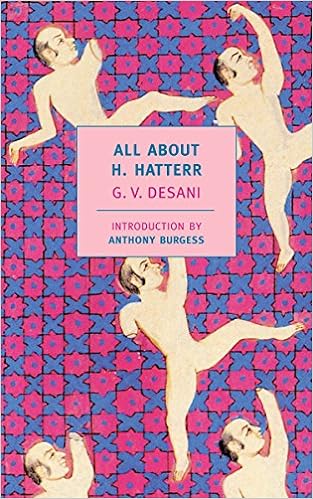
Wildly funny and wonderfully bizarre, All About H. Hatterr is one of the most perfectly eccentric and strangely absorbing works modern English has produced. H. Hatterr is the son of a European merchant officer and a lady from Penang who has been raised and educated in missionary schools in Calcutta. His story is of his search for enlightenment as, in the course of visiting seven Oriental cities, he consults with seven sages, each of whom specializes in a different aspect of “Living.” Each teacher delivers himself of a great “Generality,” each great Generality launches a new great “Adventure,” from each of which Hatter escapes not so much greatly edified as by the skin of his teeth. The book is a comic extravaganza, but as Anthony Burgess writes in his introduction, “it is the language that makes the book. . . . It is not pure English; it is like Shakespeare, Joyce, and Kipling, gloriously impure.”
Amazon product ASIN 1590172426
by G. V. Desani (Author),
Anthony Burgess (Introduction)

Wildly funny and wonderfully bizarre, All About H. Hatterr is one of the most perfectly eccentric and strangely absorbing works modern English has produced. H. Hatterr is the son of a European merchant officer and a lady from Penang who has been raised and educated in missionary schools in Calcutta. His story is of his search for enlightenment as, in the course of visiting seven Oriental cities, he consults with seven sages, each of whom specializes in a different aspect of “Living.” Each teacher delivers himself of a great “Generality,” each great Generality launches a new great “Adventure,” from each of which Hatter escapes not so much greatly edified as by the skin of his teeth. The book is a comic extravaganza, but as Anthony Burgess writes in his introduction, “it is the language that makes the book. . . . It is not pure English; it is like Shakespeare, Joyce, and Kipling, gloriously impure.”
Amazon product ASIN 1590172426
You know, Woodward has done some good work, and has not jumped the fence nearly in the way Bernstein has. But ever since the whole Casey on his deathbed thing, I can’t help but Think he occasionally just makes some shit up to fill in the narrative blanks.waiting for this
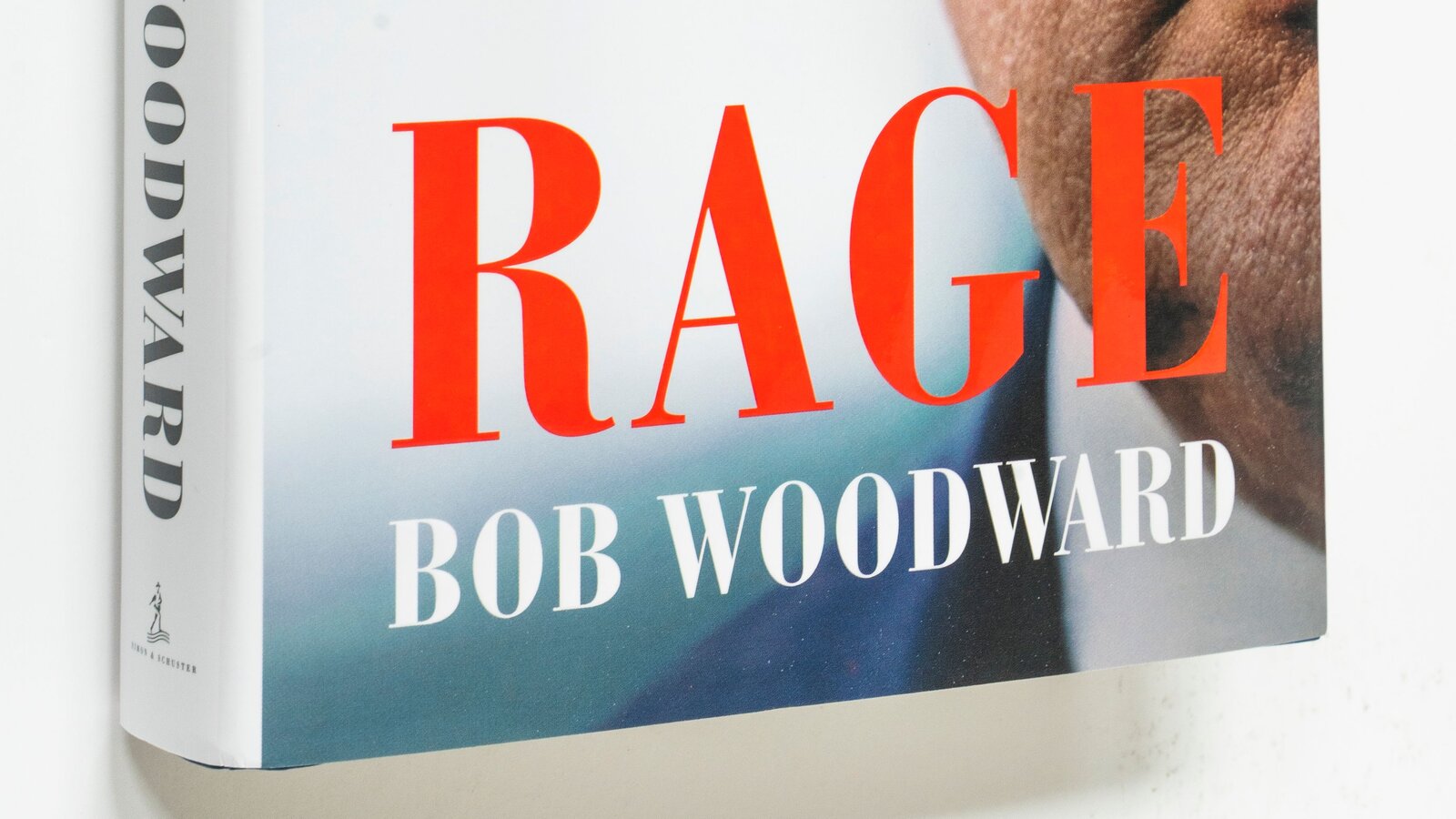
The Untold Civil War by James Robertson: 9781426208126 | PenguinRandomHouse.com: Books
National Geographic presents provocative stories shedding new light on the Civil War, American history’s watershed, from Union and Confederate soldiers to Abraham Lincoln and Gettysburg. Was Gettysburg...
www.penguinrandomhouse.com
Its a collection of matter of fact stories that came from the conflict even if they aren't historically relevant. For example regiments having mascots that are emblems on
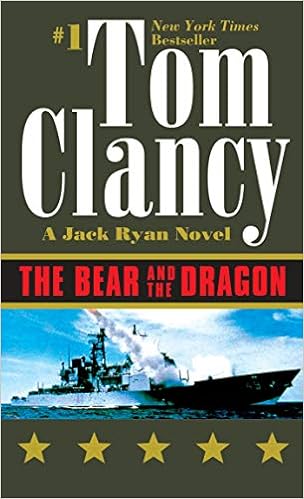
Jack Ryan is President, facing problems with China. Somewhat interesting as we see what a threat China is today. Over 1,000 pages and not as good as some of Clancy's earlier works.
Similar threads
FB Recruiting December 2 NitBits - Early Signing Period is here
- Replies
- 8
- Views
- 1K
- Replies
- 103
- Views
- 9K
- Replies
- 21
- Views
- 699
- Replies
- 15
- Views
- 1K
ADVERTISEMENT
ADVERTISEMENT
